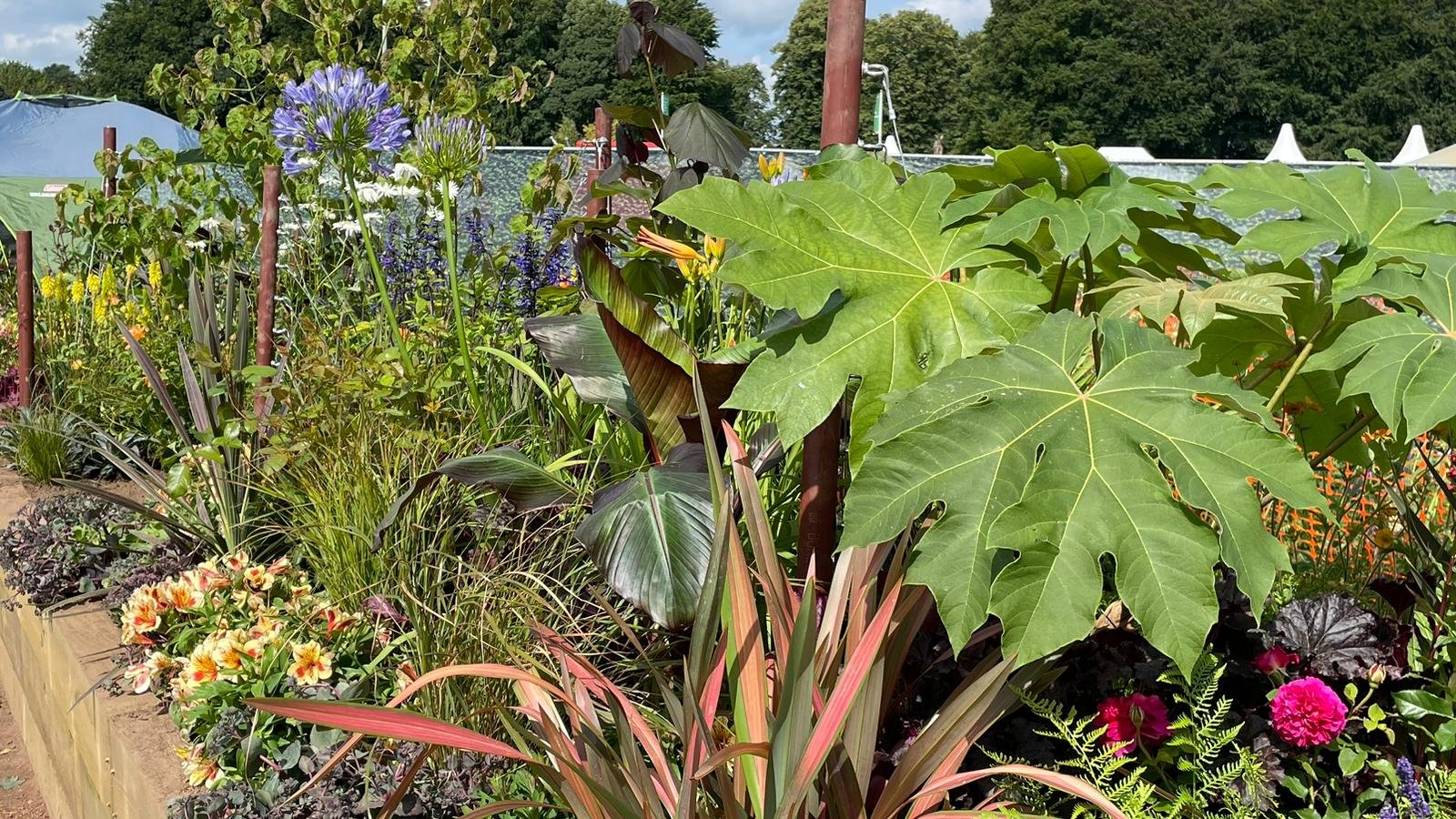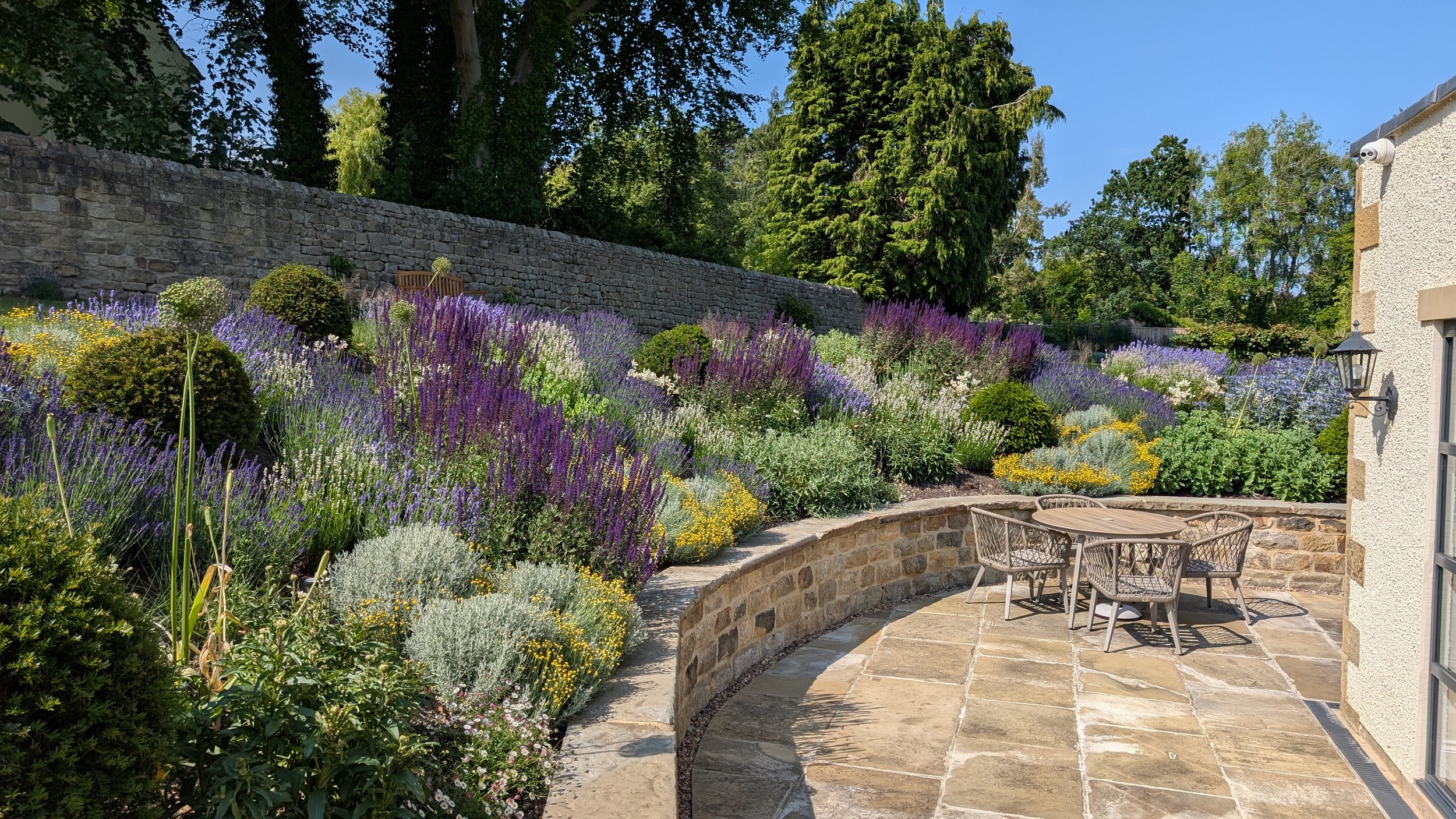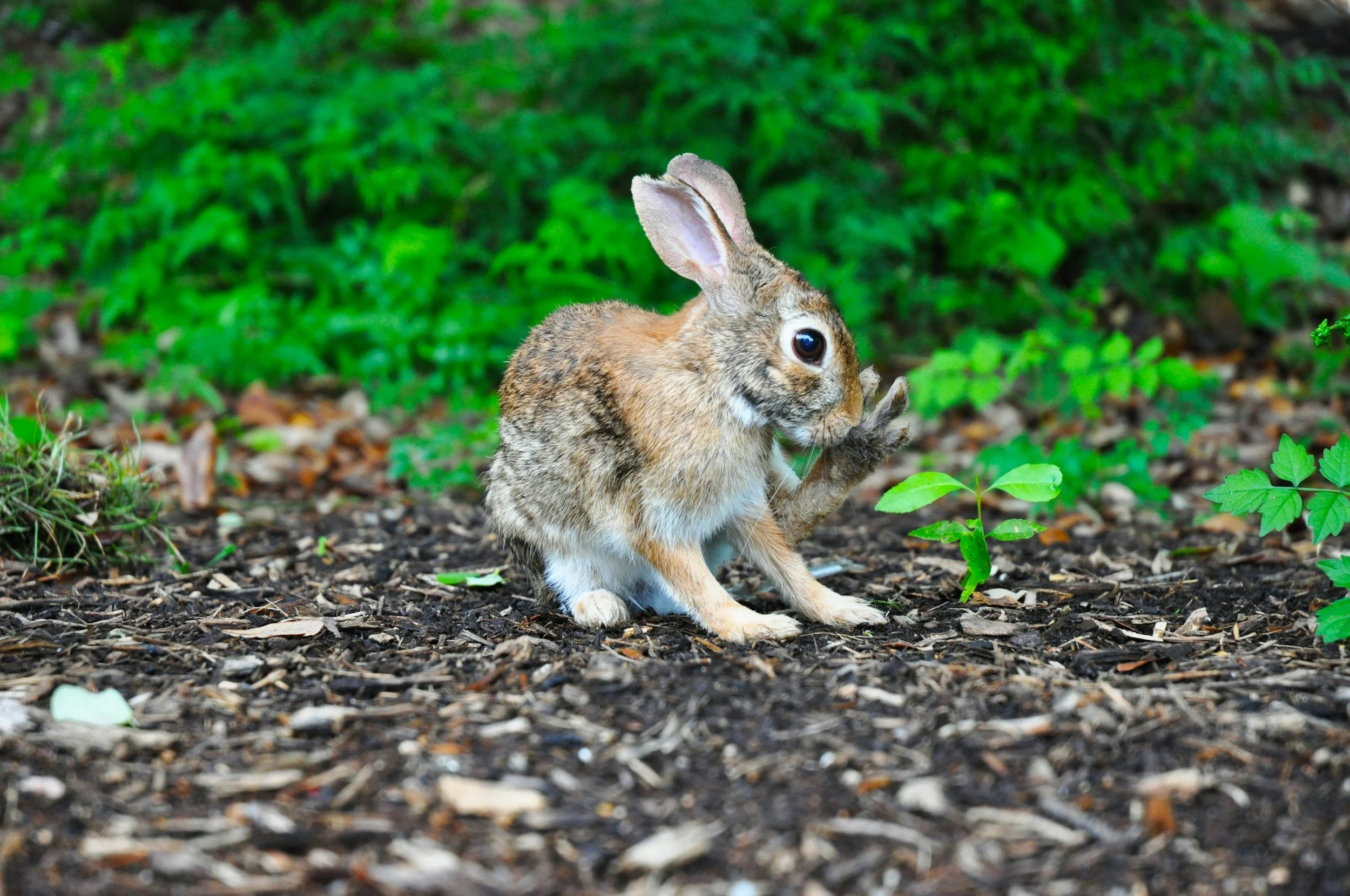
GardenWild Aftercare Manual
Introduction
This aftercare guide is tailored to support the ongoing health and development of your new garden in Yorkshire. It provides plant-specific instructions to help you care for the different types of plants in your design, taking into account Yorkshire’s climate, soil, and seasonal conditions.

Why not have a look at our bespoke aftercare packages.
Get your newly planted borders looked after by the designers who plated them.
Seasonal Tasks
General Tips for New Gardens:
Keep a garden journal (notes, photos, what worked/what didn’t).
Label new plants so you remember their needs and growth habits.
Be patient—plants typically take a full year to establish ("sleep, creep, leap" rule).
Spring Maintenance
Spring is a critical time as plants come out of dormancy and begin actively growing.
Key Tasks:
Mulching: Apply a fresh layer of mulch (2–3 inches) around plants to conserve moisture, suppress weeds, and regulate soil temperature.
Watering: Start consistent watering, especially if there's not much spring rain. Young plants may need 1–2 inches of water per week.
Weed Control: Pull weeds early before they get established and compete for nutrients.
Fertilizing: Use a balanced, slow-release fertilizer to support new growth, but avoid over - fertilising young plants.
Staking & Support: Stake or cage young plants (like tomatoes or tall perennials) before they get too big.
Inspect for Pests & Diseases: Check foliage and stems weekly for signs of insect damage, mould, or rot.
Autumn Maintenance
Fall is about preparing your garden for dormancy and setting it up for success in the spring.
Key Tasks:
Water Deeply: Continue watering until the ground freezes, especially for shrubs and trees.
Remove Debris: Clean up fallen leaves and dead plant material to prevent overwintering pests and diseases.
Fertilize Perennials: Use a low-nitrogen fertilizer to help roots grow without pushing new leaf growth.
Mulch for Winter: Apply a thicker layer of mulch (up to 4 inches) after the first hard frost to protect roots over winter.
Summer Maintenance
Summer stresses plants with heat and possible drought. This is when young gardens often struggle.
Key Tasks:
Watering: Deep watering 1–2 times a week is better than daily shallow watering. Early morning is best.
Mulch Refresh: Replenish mulch if it has broken down or been washed away.
Deadheading: Remove spent flowers to encourage continuous blooming.
Pest Management: Monitor closely for aphids, spider mites, Japanese beetles, etc. Use insecticidal soap or neem oil if needed.
Pruning: Light pruning of damaged or overcrowded growth helps airflow and prevents disease.
Winter Maintenance
Although your garden rests, there are still a few things to keep in mind.
Key Tasks:
Avoid Foot Traffic: Don’t walk on frozen garden beds—it compacts the soil.
Snow Watch: Gently brush heavy snow off shrubs and evergreens to prevent branch breakage.
Things You Should Know
-
![A close-up shot of water spraying from a black garden hose nozzle onto green plants in a garden.]()
Water Your Plants
-
![Colorful garden filled with purple lavender, white lilies, pink and orange poppies, and tall green foliage under a partly cloudy sky.]()
How long will the plants take to establish?
-
![Yellow dandelion flowers growing along a dirt pathway in a garden.]()
Weeds in the garden
-
![A brown rabbit grooming itself on a ground covered with mulch and surrounded by green plants and foliage.]()
Protecting plants from wildlife

Lets Take A Closer Look At The Plants.
Roses
Watering
Deep water once a week during dry spells. Avoid wetting foliage to reduce disease.
Pest/Disease
Watch for black spot and aphids; remove affected leaves and treat with organic fungicide if needed.
Feeding
Early spring: Apply rose-specific feed.
Mid-summer: Second feed after the first flush of flowers.
Mulching
Mulch in spring with well-rotted manure to feed and retain moisture.
Pruning
Identify the type of rose - Before pruning it is important to identify the type of rose you are dealing with.
3 Ds - Begin pruning with the removal of all dead, diseased and damaged stems leaving a network of healthy stems to work with.
Cut at a 45-degree angle - Always make cuts at a 45-degree angle facing away from the buds approximately 5mm above the bud.
Goblet shape - Be mindful of the eventual shape of the rose when pruning, in most cases this is an open centred goblet shape. Prune to an outward facing node.
Crossing or rubbing - Prune crossing or rubbing stems to prevent damage and disease.
Deadheading - Deadhead regularly whenever spent flowerheads appear, cut above 2 leaflet stems from main structure.
Here are your Roses
All Images below are also links to more detailed advice and information about each plant.
Sunlight: Full/Partial shade
Ultimate Height: 1 - 1.5 meters
Ultimate Spread: 0.5 - 1 meter
Flowering: Summer, Autumn
Sunlight: Full/Partial shade
Ultimate Height: 1 -1.5 meters
Ultimate Spread: 1 - 1.5 meter
Flowering: Summer, Autumn
Sunlight: Full/Partial shade
Ultimate Height: 0.1 -0.5 meters
Ultimate Spread: 0.4- 0.75 meter
Flowering: Summer, Autumn
Perennials
These are the Perennial we’ve planted in your garden and how to maintain them.
Watering
Water during establishment and in drought; most are drought-tolerant once mature.
Dividing
Every 2–4 years in spring or autumn to maintain vigor.
Pruning
Deadheading: Regular deadheading prolongs flowering.
Cutting Back: Autumn or early spring: Cut to base unless left for winter interest.
Sunlight: Full sun/ Partial Shade
Ultimate Height: 0.5 meters
Ultimate Spread: 0.5 meter
Flowering: Spring / Summer
Sunlight: Full
Ultimate Height: 0.5 - 1 metres
Ultimate Spread: 0.5 - 1 metres
Flowering: Spring -Summer
Sunlight: Full/Partial Shade
Ultimate Height: 1 .2- 1.8 meters
Ultimate Spread: 0.5 - 1 meter
Flowering: Late summer - Autumn
Sunlight: Full sun
Ultimate Height: 0.5 - 1 meters
Ultimate Spread: 0.1 - 0.5 meter
Flowering: Summer - Autumn
Sunlight: Full/Partial Shade
Ultimate Height: 0.1 - 0.5 meters
Ultimate Spread: 0.5 - 1 meter
Flowering: Summer - Autumn
Sunlight: Full/Partial Shade
Ultimate Height:1-1.5 metres
Ultimate Spread:1-1.5 metres
Flowering: Summer
Sunlight: Full
Ultimate Height: 0.5 - 1 meters
Ultimate Spread: 0.5 - 1 meter
Flowering: Summer
Sunlight: Full Sun/Partial Shade
Ultimate Height: 0.5 - 1 meters
Ultimate Spread: 0.1 - 0.5 meter
Flowering: Summer
Sunlight: Full
Ultimate Height: 0.1 - 0.5 meters
Ultimate Spread: 0.5 - 1 meter
Flowering: Summer -Autumn
Sunlight: Full
Ultimate Height: 0.5-1 meters
Ultimate Spread: 0.1 - 0.5 meter
Flowering: Summer
Sunlight: Full/ partial shade
Ultimate Height: 0.5- 1 meters
Ultimate Spread: 0.1- 0.5 meter
Flowering: Summer
Sunlight: Full
Ultimate Height: 0.5-1 metres
Ultimate Spread: 0.1 - 0.5 meter
Flowering: Late Spring-Summer
Sunlight: Full sun/ Partial Shade
Ultimate Height: 0.5 - 1 meters
Ultimate Spread: 0.1 - 0.5 meter
Flowering: Spring / Summer
Sunlight: Full
Ultimate Height: 0.5 meters
Ultimate Spread: 0.1 - 0.5 meter
Flowering: Late Summer - Autumn
Sunlight: Full
Ultimate Height: 0.5 - 1 meters
Ultimate Spread: 0.1 - 0.5 meter
Flowering: Late Summer - Autumn
Sunlight: Full/Partial Shade
Ultimate Height: 0.1 - 0.5 meters
Ultimate Spread: 0.1 - 0.5 meter
Flowering: Early Summer - Summer
Sunlight: Full/Partial Shade
Ultimate Height: 0.1 - 0.5 meters
Ultimate Spread: 0.1 - 0.5 meter
Flowering: Spring
Sunlight: Full
Ultimate Height: 0.5 - 1 meters
Ultimate Spread: 0.1 - 0.5 meter
Flowering: Summer
Sunlight: Full
Ultimate Height: 1 - 1.5 metres
Ultimate Spread: 1 - 1.5 meter
Flowering: Spring -Summer
Sunlight: Full
Ultimate Height: 0.1 - 0.5 metres
Ultimate Spread: 0.5 - 1 meter
Flowering: Summer
Sunlight: Full sun
Ultimate Height: 0.5 - 1 meters
Ultimate Spread: 0.5 - 1 meters
Flowering: Summer - Autumn
Sunlight: Full
Ultimate Height: 1 - 1.5 meters
Ultimate Spread: 1 - 1.5 meter
Flowering: Summer
Sunlight: Full
Ultimate Height: 1 - 1.5 meters
Ultimate Spread: 0.5 - 1 meter
Flowering: Late Summer - Early Autumn
Sunlight: Full
Ultimate Height: 0.5 - 1 meters
Ultimate Spread: 0.5 - 1 meter
Flowering: Late Summer - Early Autumn
Sunlight: Full
Ultimate Height: 0.5 - 1 meters
Ultimate Spread: 0.5 - 1 meter
Flowering: Mid - Late Summer
Sunlight: Full
Ultimate Height: 0.5 - 1 meters
Ultimate Spread: 0.5 - 1 meter
Flowering: Mid - Late Summer
Sunlight: Full/Partial Shade
Ultimate Height: 0.5 - 1 meters
Ultimate Spread: 0.1 - 0.5 meter
Flowering: Spring / Summer
Sunlight: Full/Partial Shade
Ultimate Height: 0.5 - .06meters
Ultimate Spread: 0.5 - 0.6meter
Flowering: Summer - Autumn
Sunlight: Full Sun
Ultimate Height: 0.5 - 1 meters
Ultimate Spread: 0.1 - 0.5 meters
Flowering: Summer - Autumn
Sunlight: Full
Ultimate Height: 1-1.5 metres
Ultimate Spread: 0.1 - 0.5 meter
Flowering: Late Spring-Summer
Here are your Perennials
All Images below are also links to more detailed advice and information about each plant.
Shrubs
These are the Shrubs we’ve planted in your garden and how to maintain them.
Watering
Water Regular in first year. It’s Important in dry periods, especially in winter winds.
Feeding
Evergreen Shrubs require feeding in the spring with a slow-release feed.
Flowering Deciduous Shrub require a spring feed with general-purpose fertiliser.
Pruning
Shrubs have a more specific pruning needs - Please click on the image of the plant you’re pruning for their specific pruning group.
Here are your Shrubs
All Images below are also links to more detailed advice and information about each plant.
Sunlight: Full Sun
Ultimate Height: 0.1 - 0.5 meters
Ultimate Spread: 1 - 1.5 meter
Flowering: Summer, Autumn
Sunlight: Full/Partial shade
Ultimate Height: 0.5 - 1 meters
Ultimate Spread: 0.5 - 1 meter
Flowering: Summer - Autumn
Sunlight: Full/Partial shade
Ultimate Height: 0.5 - 1 meters
Ultimate Spread: 1 - 1.5 meter
Flowering: Summer, Autumn
Sunlight: Full/Partial shade
Ultimate Height: 1 -1.5 meters
Ultimate Spread: 1 - 1.5 meter
Flowering: Summer, Autumn
Sunlight: Full
Ultimate Height: 0.5 - 1 meters
Ultimate Spread: 0.1 - 0.5 meter
Flowering: Summer
Sunlight: Full Sun/Partial Shade
Ultimate Height: 2.5 - 4 meters
Ultimate Spread: 0.5 - 1 meter
Flowering: Spring
Sunlight: Full Sun/Partial Shade
Ultimate Height: 0.5 - 1 meters
Ultimate Spread: 1 - 1.5 meter
Flowering: Summer - Autumn
Sunlight: Full
Ultimate Height: 0.1 - 0.5 meters
Ultimate Spread: 0.5 - 1 meter
Flowering: Summer
Sunlight: Full/Partial Shade
Ultimate Height: 0.5 - 1 .5meters
Ultimate Spread: 0.5 - 1.5meters
Flowering: Spring / winter
Sunlight: Full/Partial shade
Ultimate Height: 0.1 -0.5 meters
Ultimate Spread: 0.4- 0.75 meter
Flowering: Summer, Autumn
Sunlight: Full sun/Partial Shade/ full shade
Ultimate Height: 10-12 meters
Ultimate Spread: 6-8 meter
Flowering: Evergreen
Sunlight: Full/Partial Shade
Ultimate Height: 1 - 1.5 meters
Ultimate Spread: 1 - 1.5 meter
Flowering: Spring - Summer
Sunlight: Full/Partial Shade
Ultimate Height: 0.1 - 0.5 meters
Ultimate Spread: 0.5 - 1 meters
Flowering: Summer
Sunlight: Full
Ultimate Height: 0.1 - 0.5 meters
Ultimate Spread: 0.5 - 1 meter
Flowering: Summer
Ornamental Grasses
These are the Grasses we’ve planted in your garden and how to maintain them.
Watering
Moderate needs more during dry spells in establishment.
Dividing
Every 3–4 years in spring.
Pruning
Leave seed heads over winter
Cut back hard (to the base) in late Feb–early March.
Here are your Grasses
All Images below are also links to more detailed advice and information about each plant.
Sunlight: Full/Partial Shade
Ultimate Height: 1 - 1.5 meters
Ultimate Spread: 0.5 - 1 meters
Flowering: Summer
Sunlight: Full Sun/Partial shade
Ultimate Height: 0.5 - 1 meters
Ultimate Spread: 0.1 - 0.5 meter
Flowering: Summer - Autumn
Sunlight: Full
Ultimate Height: 0.5- 1 meters
Ultimate Spread: 0.1- 0.5 meter
Flowering: Summer - Autumn
Sunlight: Full Sun / Partial Shade
Ultimate Height: 0.5 - 1 metres
Ultimate Spread: 0.5 - 1 meter
Flowering: Evergreen
Sunlight: Full
Ultimate Height: 0.5 - 1 metres
Ultimate Spread: 0.1 - 0.5 meter
Flowering: Spring -Summer
Sunlight: Full/Partial Shade
Ultimate Height: 1 - 1.5 meters
Ultimate Spread: 1 - 1.5 meters
Flowering: Summer -Autumn
Sunlight: Full/Partial Shade
Ultimate Height: 1 - 1.5 meters
Ultimate Spread: 0.5 - 1 meters
Flowering: Summer
Sunlight: Full/Partial Shade
Ultimate Height: 1 - 1.5 meters
Ultimate Spread: 0.5 - 1 meter
Flowering: Evergreen
Support
Check ties and supports regularly.
Never use wire when tying in your rose. As the rose grows the wire will strangle the stems. Use string or twine so as the rose grow it will break and not the rose.
Climbing Plants
These are the Climbers we’ve planted in your garden and how to maintain them.
Feeding
Feed in spring with potassium-rich fertiliser.
Pruning
Clematis Group 1 (early flowering): Prune after flowering.
Group 2 (repeat-flowering): Light prune in Feb and again after first flush.
Group 3 (late flowering): Cut back hard to about 30cm in February.
Climbing Roses - By training stems horizontally you encourage the nodes along the length of the stem to bud. These bud will turn in to stem that will grow vertically and flower their apex. In short, the more horizontal stems, the more budding nodes and the more covered in blooms your climbing rose will be.
Here are your Perennials
All Images below are also links to more detailed advice and information about each plant.
Sunlight: Partial Shade / Shade
Ultimate Height: 8 - 12 meters
Ultimate Spread: 2.5 - 4 meter
Flowering: Spring - Summer
Sunlight: Full/Partial shade
Ultimate Height: 6 meters
Ultimate Spread: 6 meter
Flowering: Summer, Autumn
Sunlight: Full/Partial shade
Ultimate Height: 4 meters
Ultimate Spread: 2.5 - 4 meter
Flowering: Summer, Autumn
Sunlight: Full/Partial shade
Ultimate Height: 4 - 8 meters
Ultimate Spread: 4 - 8 meter
Flowering: Summer




























































